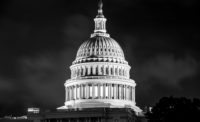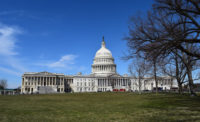ASA Washington weekly update
Legislative happenings of prime importance to the PHCP-PVF supply chain.

The House and Senate are in session this week.
COVID-19 relief:
- President Biden’s $1.9 trillion American Rescue Plan is expected to come to the floor for a vote on Friday. This could be delayed due to some policy aspects as well as parliamentary procedure.
- The Senate Parliamentarian is expected to give her opinion by Friday, on whether a $15-an-hour minimum wage provision can be included in the bill.
- Under the budget reconciliation rules that would prevent a GOP filibuster of the legislation, the wage provision must be free from enacting change to present policy. If the parliamentarian rules that the provision cannot be included, this will provide a more difficult path to passage.
- Republicans have yet to support the legislation, as of this writing.
- The White House and Democratic Congressional leadership would like to see COVID-19 legislation passed before current benefits, from December’s stimulus bill, expire on March 14.
Congress:
- Interior Secretary designee, Rep. Deb Haaland (D-NM), after receiving a tough review from Senate Republicans over her views on fossil fuels, received a boost as Sen. Joe Manchin (D-WV) announced that he would support her nomination.
- Office of Management and Budget nominee Neera Tanden’s confirmation vote has been postponed after several moderate senators from both parties indicated their opposition. This has put her confirmation in jeopardy.
- The Senate will hold confirmation hearings for Energy Secretary nominee Jennifer Granholm and a vote on Education Secretary nominee Miguel Cardona.
Letters:
ASA signed onto a letter urging House and Senate Finance Leadership to support the Main Street Tax Certainty Act that would retain 199A pass-through deductions, among other items.
State legislation tracking:
- Arizona (HB 2286/SB 1037): Water efficient plumbing fixtures.
- California (AB 100): Endpoint water fixtures/lead reduction.
- Hawaii (HB 116): Energy Efficiency.
- Maryland (HB 33): Establishing a Climate Crisis Initiative in the Department of the Environment for certain purposes; establishing a greenhouse gas reduction target of 60% from 2006 levels by 2030 and net-zero by 2045.
- Massachusetts (HD 1296): An Act to Reduce Greenhouse Gas Emissions by Permitting Local Option All-Electric Buildings and Homes Ordinances.
- Massachusetts (SB 13): An Act creating a next-generation roadmap for Massachusetts climate policy.
- New York (S 1559): Establishes a Green New Deal.
- Virginia (HB 1811): Virginia Public Procurement Act; preference for energy-efficient and water-efficient goods. Provides that in the course of procuring goods, if a public body receives two or more bids for products that are Energy Star certified, meet Federal Energy
- Management Program (FEMP) designated efficiency requirements, appear on FEMP's Low Standby Power Product List, or are WaterSense certified, such public body may only select among those bids.
- Washington (HB 1084): Reducing statewide greenhouse gas emissions by achieving greater decarbonization of residential and commercial buildings.
- Washington (HB 1091): Reducing greenhouse gas emissions by reducing the carbon intensity of transportation fuel.
Looking for a reprint of this article?
From high-res PDFs to custom plaques, order your copy today!






